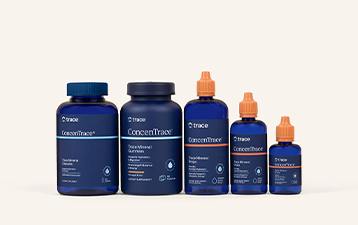Discrete manufacturing and process manufacturing are the two most common manufacturing industries. However, sometimes it might not be very clear how these industries differ from each other. To choose the right ERP software based on your business operations, it becomes essential to understand whether your manufacturing process falls into the category of discrete manufacturing or process manufacturing.
By gaining knowledge of the difference between discrete manufacturing and process manufacturing, you will be able to make a deliberate decision about whether the specialized process manufacturing ERP system or the discrete manufacturing ERP system is the right fit to fulfill industry-specific needs. Before diving deep into the distinctions between both, let’s first understand the basic meaning of both types of manufacturing.
What is Discrete Manufacturing?
Discrete manufacturing involves the manufacturing of items that can be counted and measured in a discrete unit of measurement, like each. These items are usually assembled with different component parts to make a final finished good. Some examples of discrete manufacturing industries are automobiles, industrial equipments, medical devices, apparel, and more.
What is Process Manufacturing?
Process manufacturing involves manufacturing an item using a formulation or a recipe where two or more raw materials are mixed to form an intermediate for a final finished good. Items manufactured in the process manufacturing industry are usually measured in weight or volume units of measurement like pound, kg, and liter. Some examples of process manufacturing industries are personal care and cosmetics, food and beverages, chemicals, and pharmaceuticals.
How is Discrete Manufacturing Distinct from Process Manufacturing Systems?
Let’s examine discrete manufacturing vs. process manufacturing systems in detail, focusing on how the manufacturing operations are uniquely controlled and managed to streamline the process.
Recipe Management
In discrete manufacturing, different component parts are used to manufacture a product, and no mixing of two raw materials is involved with any specific formula. The manufacturing process in discrete manufacturing is not based on weight, volume percentage, or ratio but it is based on fixed units.
Process manufacturing involves a recipe or formula based on weight, volume percentage, or specific units in which two or more raw materials are mixed with a fixed ratio and proportion of ingredients to manufacture an intermediate or final finished good. This process can be managed using a specialized process manufacturing system.
Units of Measurement (UOMs)
Discrete units of measurement, like each and pack, are used with simple packaging where the final finished good and component parts can be easily counted. Complex unit conversions are not involved, which can be achieved with the help of a discrete manufacturing ERP system.
In process manufacturing, multiple units of measurement are used with complex unit conversions as different items are involved with varying units of measurement, including complex packaging. For example, to manufacture orange juice, oranges in lb unit, ascorbic acid in ml unit, and water in liters are raw materials used to produce the intermediate orange juice in gl unit, which is then packed with a specific fill level of 1 gallon bottle as a finished good. This requires a comprehensive process manufacturing ERP system to carry out the precise calculations of complex unit conversions.
Disassembly
Once manufactured, it’s easy to disassemble the finished product into sub-assemblies or the original component part in discrete manufacturing, which can be achieved with a discrete manufacturing system.
Mixing ingredients is involved in process manufacturing. Specific processes are irreversible; for example, once the orange pulp, water, sugar, and ascorbic acid are combined to form an intermediate orange juice, you cannot separate the ingredients back into their original items. This makes extracting or separating raw materials from a finished good to original BOM components impossible.
Batch Production
In discrete manufacturing, products are assembled using linear routing. This means each component part is added to the product in a predefined sequential manner, often on an assembly line, to ensure each product is added in the right order with the right component. This approach is feasible to operate using the typical discrete manufacturing system.
Process manufacturing focuses on blending items in batches, which involves complex batch sizing rules. Ingredients are mixed together in a container to create a batch of the product. Batch sizes may vary depending on factors like production capacity, market, or customer demand. This requires a specific process manufacturing system with batch processing capabilities to ensure batch consistency.
Handling Losses
The scrap concept is commonly used in discrete manufacturing. During inspection, if any product is found defective, damaged, or inefficient, it is scrapped. A typical discrete manufacturing system tracks and manages the scrapping of materials to minimize waste and optimize the production process.
Process manufacturing considers various losses, such as line-level loss, constant loss, loss percentage, or yield calculation, throughout production. During production, losses occur due to evaporation, residuals, spillage, equipment setup, or changeovers. These losses are integrated into raw material planning processes and yield calculations. Process manufacturing systems aim to minimize these losses, efficiently use raw materials, and optimize yield percentages.
Property Analysis
Discrete manufacturers don’t need to track raw materials’ physical or chemical properties and adjust parts to meet specific target values, as we know that component parts have no nutritional value.
Process manufacturers need to track raw materials’ physical and chemical properties to meet target values. For example, raw materials used in the manufacturing process of orange juice are oranges, ascorbic acid, sugar, and water. There are properties associated with raw materials like oranges, which have carbohydrates and sugar; ascorbic acid, which contains sodium; and sugar, which contains carbohydrates. To manufacture the final finished product of orange juice, manufacturers might need to adjust quantities to meet target nutritional values. This can be achieved by a process manufacturing system with laboratory capabilities and cannot be achieved by a typical discrete manufacturing system.
Allergen Tracking
In discrete manufacturing, no complexity is involved in tracking the finished product’s allergens.
Process manufacturing definitely requires tracking allergens present in the product. Some products may have allergens, and some do not. Products must be categorized, and control critical points must be managed based on the presence of allergens in the product to prevent food safety hazards. A process manufacturing system with allergen management is the right fit for tracking allergens throughout the production lifecycle of any product with allergens.
Quality
Quality is a crucial aspect of all manufacturing industries. However, discrete manufacturing requires a limited lot and serial tracking. Industry regulations such as ISO, 21 CFR Part 21, and more are minimal. A discrete manufacturing system with quality management solutions can help meet these requirements.
Compliance requirements in process manufacturing are different from those in discrete manufacturing. Process manufacturing compliance requirements include safety data sheets (SDS), regulations for hazardous materials, EPA and FDA regulations, and more. Process manufacturing systems with robust quality management solutions can help process manufacturers meet compliance requirements and maintain quality control throughout the manufacturing process.
Conclusion
Implementing the right ERP system with the right solutions integrated into it can also affect efficiency and return on investment (ROI). Discrete and process manufacturing operate differently, so it’s important to identify the manufacturing type and integrate the solution that is a good fit for your industry, meeting business-specific needs and delivering value to streamline the manufacturing process.
eWorkplace Apps’ Process Manufacturing Suite, combined with its Quality Management Suite for Acumatica ERP, provides a robust solution for process manufacturers. The solution can help solve your industry challenges, resulting in minimized costs and scaled-up production. Contact us for more details.
Contact Us
"*" indicates required fields













